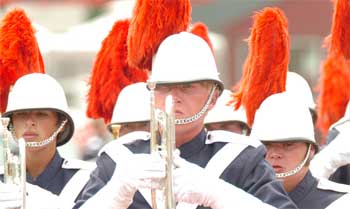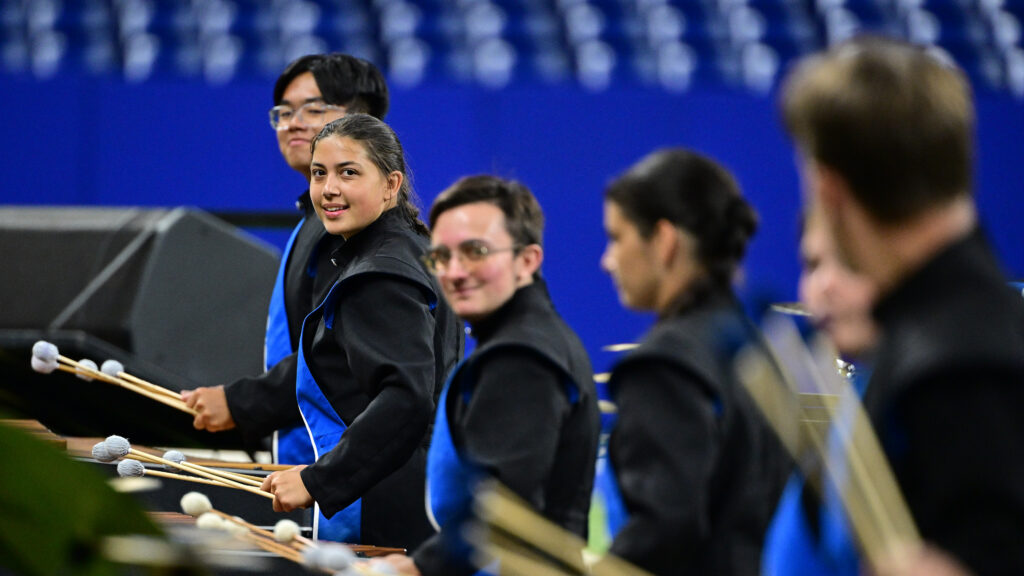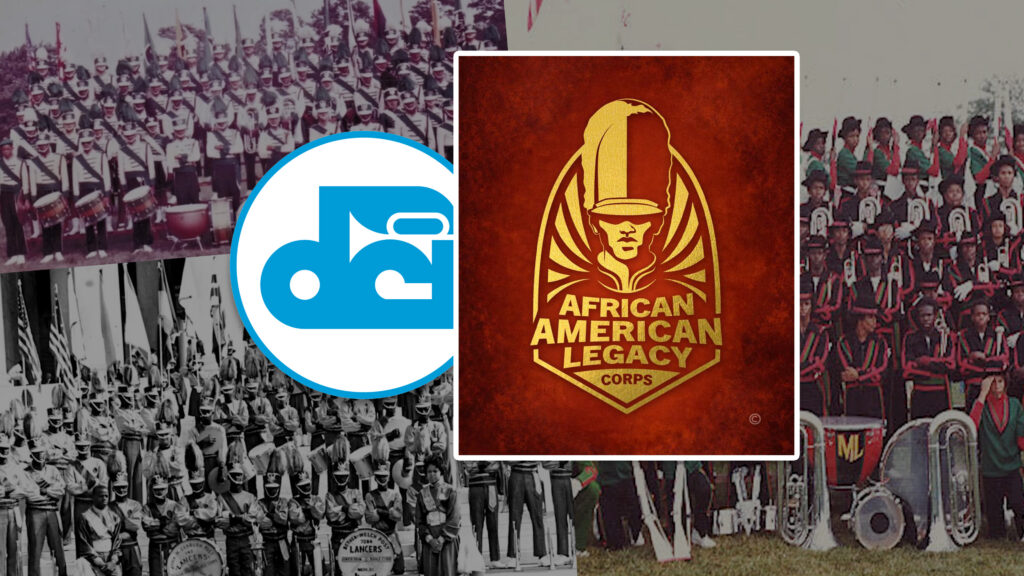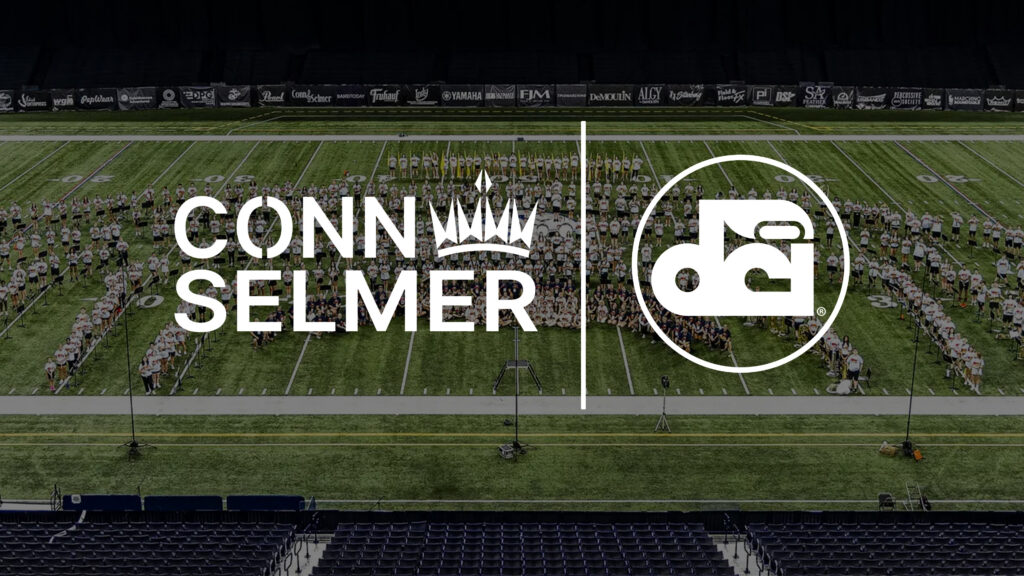At the most-recent DCI board of directors meeting, the Blue Stars of LaCrosse, Wis., were given the OK to take the field as a Division I corps in 2006, for the first time since 1982. The corps has a long and colorful history with DCI — the corps was a founding member of DCI and was a finalist through much of the 1970s. Greg Struve, director of the Blue Stars since 2003, kindly took the time this week to answer some questions about the corps and the transition from Division II to Division I.
What is your drum corps background?
I’ve been involved in drum corps since 1997, first as a euphonium player and later as an administrator. I became executive director here in the fall of 2003, on the heels of Brad Furlano. Those were some big shoes to fill!

Can you fill us in on some of the Blue Stars history?
I’ll just cut and paste from our brochure. It’s much more eloquent than I could be!
“The Blue Stars were founded in 1964, a time when small drum and bugle corps were almost as common as little-league baseball teams. With the help of a sponsorship from First Federal Bank of La Crosse, the “First Federal Blue Stars” rose to national prominence almost immediately. In 1972 the Blue Stars were one of the six corps that came together to form Drum Corps International, still the governing body of drum corps today. The corps placed second at the Drum Corps International World Championships in 1972, and remained one of in the activities elite top-12 for the remainder of that decade.
“After a financial crisis in 1982, the corps reorganized as a Division III group. It was there that the corps established itself as one of the elite small corps in the world. In 1987 the corps began its unprecedented string of 18 consecutive Division II & III finalist appearances, and four DCI Division III World Championships (’89, ’93, ’01, ’03). The corps was smaller, but it held fast to the legacy and tradition of the early years.”
Now the corps has returned to its former size and division, we hope to become a world leader in the drum corps arena, especially in the area of character development for our membership.
Was going Division I a plan of yours for several years?
Blue Stars was a founding member of DCI and is one of the great names in drum corps — a group that is truly legendary. I think it’s been a dream of the corps members, alumnus, and fans to return since the early ’80s. It became a formalized plan in the fall of 2003, when we looked at what was necessary and realized that, with a bit of hard work, we could actually do it.
What did the process of going Division I entail?
It was a rigorous and exhaustive review process that started in May 2004 and ended in September of 2005. DCI’s participation review committee went over our books and our operation in great detail to make sure that we were ready. During that time they interviewed members of our organization at all levels, reviewed our finances, observed our operations on the road, and just generally looked over every detail they could. They were very, very thorough.
Sounds like a lot of work! What did you think of the process?
Very beneficial! There were quite a few guys in that group who knew a lot more about running a drum corps than I did, so hearing their feedback helped us streamline our operations. I’m grateful that the committee looked us over because it really helped to have that dialog and direction, and to help us ensure that the move to Division I was something we were prepared for.
What will you change about how the corps is run?
Not much. What makes Blue Stars unique is the familial environment we create and get to live in every summer. I’m going to do my best to continue to keep that in place.
Is the corps ready for a Division I tour?
That question always makes me chuckle — 2005 was set up to be a realistic test-run at Division I. We traveled 13,000 miles and did 35 contests, plus another 15 paid performances. To my knowledge, we had more shows than any other corps in the activity, and we were pretty close in terms of mileage. 2006 will see us continuing to tour and perform at that level — if anything we’ll do a few less miles and a couple less contests.
Are the members excited? Will many return?
Our exit interview forms indicate that we can expect very high retention. The members had a great time!
Will many of your instructors return?
We’ve been blessed with a large, dedicated group of people who worked for pennies — many of whom passed up more lucrative jobs for a chance at bringing Blue Stars back to Division I. Nearly all of our instructors are going to be offered positions with the corps in 2006.
We will probably see new faces in many of the key leadership roles, which means that many of last year’s caption heads will be given the opportunity to study under some of the more accomplished instructors in the activity and continue in their development. We’re blessed in that the activity is filled with great instructors who remember and revere the Blue Stars of yesteryear, and who have offered their services in helping the corps become a world leader in the Division I arena again. Expect some exciting press releases in the days to come.
Will there be more pressure on you as a director now that you're Division I?
Ha! That’s an interesting question.
For better or for worse, I put a lot of pressure on myself. I have so much reverence for this corps, and want so badly for it to be great — this pressure is compounded by the fact that I drop balls pretty regularly! I continue to be blessed by a large organization filled with great people. So far for me, being a director has been not so much about not making mistakes as about learning from them, and having folks around who can help me clean them up efficiently.
So no, I don’t think the pressure will increase any, it will just take different forms. As one friend said, “Some days it seems like my corps runs me, rather than the other way around.”
Who amongst directors/DCI personnel has been the most helpful through this process?
How much space do you have? There are so many of them …
The guy who’s been most helpful through the process was probably Brad Furlano. Brad was the interim director of the Blue Stars in 2003. He’s a consummate diplomat who understands the big picture right away.
I’d also mentioned Brian Whitty, David Kampschroer and the others who were at the helm of this organization before my tenure began, especially the folks who reconstructed the corps in the early ’80s. Compared to them, my job is a piece of cake! There are so many unsung heros who stuck with this group through many years.
Then, of course, there is my friend and mentor Scott Stewart. Scott has been a tremendous role model and teacher. Scott taught me that no matter what else is going on, the most important thing is the member experience.
Pat Seidling and Greg Orwoll have also been invaluable. Both come from strong organizations and were eager to do what they could to help strengthen Blue Stars. Brent Turner and Gavin Burnham fall into that category as well.
All of these people have played a role in the Blue Stars recent success, and really I’m just getting started. I could talk about Rick Bay’s letting me use his corps hall on 72 hours notice, Fiedler helping out with insurance advice, emails from a variety of directors answering questions that for many of them probably seemed inane …
In general I’ve found the community of drum corps directors to be a supportive group of people who are willing to bend over backwards to help one another. Blue Stars owe a great debt of gratitude to all of DCI for the help we’ve received — and will likely continue to receive — along the way.
What are you most looking forward to about the summer?
The opportunity to showcase the Blue Stars to a wider audience, put together a great show, and provide the members with the opportunity to grow as performers, community members, and human beings.
Anything you'd like to share with those who might be considering auditioning?
A couple of things. First, look carefully at the corps you’re considering. Every group has a different culture, motivation and direction. Make sure that the corps where you audition is a good fit for you in terms of your values, motivations and personal goals.
Second, don’t be afraid to audition! Even if you don’t make it, the experience will prepare you for next season’s audition. For most of us our biggest regrets are the things that we didn’t do — don’t be afraid to give it a shot.





